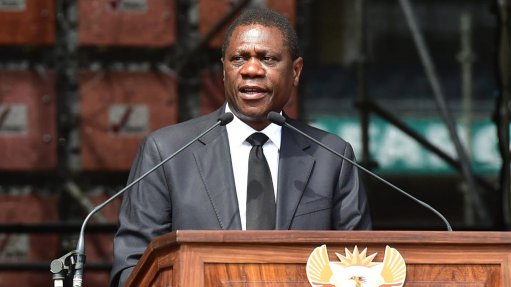
Deputy President Paul Mashatile
The Democratic Alliance (DA) said on Friday it trusts that the African National Congress (ANC) will put “petty party differences” aside and support the DA’s coalition Bills, which it will soon introduce to Parliament.
The party welcomed Deputy President Paul Mashatile’s commitment to support the introduction of legislation that will seek to stabilise coalition governments.
Answering questions in the National Assembly on Thursday, Mashatile acknowledged the importance of the issue of coalitions, calling for urgency and “collective wisdom” on the matter.
DA Chief Whip Siviwe Gwarube said Mashatile committed to bring together stakeholders, such as political parties in Parliament, the South African Local Government Association and government, to adopt policy and legislative interventions.
Gwarube stressed the importance of stable, clean and accountable coalition governments.
“This will be especially important as we head towards the 2024 elections where the ANC [African National Congress] is likely to lose its national majority and [its] majority in a few provinces. Parliament must ready itself for a post-ANC South Africa,” she said.
The DA’s Bills, which seek to amend the Constitution and the Municipal Structures Act of 1998, have been gazetted for public comment.
Gwarube noted that the amendments would provide a legal framework for stable and accountable coalition governments at the local, provincial and national levels.
The laws will seek to achieve the introduction of an electoral threshold that will be key to stabilising overly-fragmented coalition governments.
International best practice showed that most stable coalition governments around the world have electoral thresholds in place, she said.
Gwarube said the Bills would allow for more time to negotiate and swear in a government after an election from 14 days to 30 days across local, provincial and national levels.
It will also limit the use of motions of no confidence to once a year, provided there is evidence of laws being broken and objective gross misconduct, she explained.
She noted that motions of no confidence had been abused at a local government level, and added that the impact of such a practice at a provincial or national level would be catastrophic.